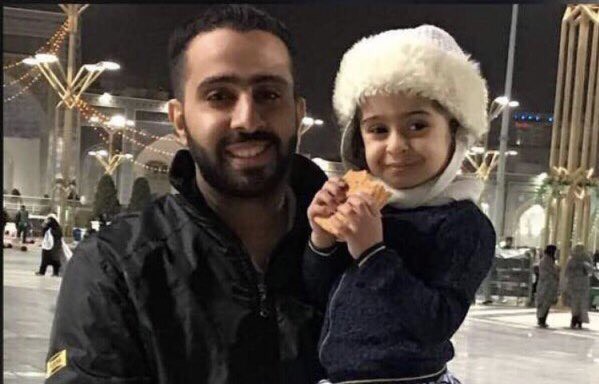On 28 February 2019, the Supreme Criminal Court of Bahrain sentenced Bahraini citizen Ali Mohammed Al Shuwaikh to life imprisonment and the revocation of his citizenship. He was tried under the “Protecting Society from Terrorist Acts” law, known locally as the Terrorism Act, a law condemned by the United Nations committees and human rights organisations for violating international human rights standards.
In February 2017, Ali Al Shuwaikh was able to leave Bahrain and eventually arrived in the Netherlands, where he applied for political asylum. On 20 October 2018, the authorities in Netherland forcibly deported him to Bahrain after they refused his asylum application. Al Shuwaikh asked the authorities to deport him to any country other than Bahrain, where he feared for his fate. He faced being subjected to torture and forced confessions, and then unfair sentences from the non-independent judiciary.
Upon his arrival at Bahrain Airport on 20 October 2018, the Bahraini authorities indeed arrested Al Shuwaikh and detained him without him being able to communicate and meet with his lawyer. The Criminal Investigations Unit held him for 11 days before he was transferred to Dry Dock Prison and forced to sign forced confessions under torture. The prison administration allowed the Shuwaikh family to visit him for the first time in Dry Dock Prison on 4 November 2018. On February 28, 2019, he was sentenced to life imprisonment, the revocation of his citizenship and a fine of BD 500. The court did not investigate Al Shuwaikh’s claims that he was forced to sign confessions. The court did not allow the representative of the Dutch diplomat, who cane from Kuwait to attend the trial in January 2018, which was public. The court guard prevented the Dutch diplomatic, “Witcher J. Slagter,” from entering the courtroom.
Salam DHR believes that the Dutch authorities bear part of the responsibility for what happened to Al Shuwaikh, given that he was refused asylum there in October 2018. They claimed that he was unable to prove he was at risk of persecution if deported to Bahrain, which is what happened. The Dutch authorities also bear responsibility since they did not allow the victim to choose the country he wished to travel to other than Bahrain. His passport was valid at that time.
Salam DHR believes that the international community, including the Netherlands, must be aware of the serious risks involved by extraditing victims fleeing persecution from their own countries such as Bahrain, where fair trials are absent. Salam DHR hopes that the Dutch authorities will form a committee of inquiry into the reasons for rejecting Al Shuwaikh’s asylum application and the reasons for not allowing him to travel to a country other than Bahrain. We also call upon the Bahraini authorities to stop trying and imprisoning their opponents, including following unfair trials and based on confessions extracted under torture.
Salam DHR urges the Bahraini authorities to correct their poor human rights record, by immediately releasing of all prisoners of conscience, dropping all charges against them and compensating them for all damages they have suffered. We also call on them to repeal unfair laws that violate international law, to ensure the separation of executive, legislative and judicial powers and the independence of the judiciary.


 العربية
العربية Français
Français Deutsch
Deutsch